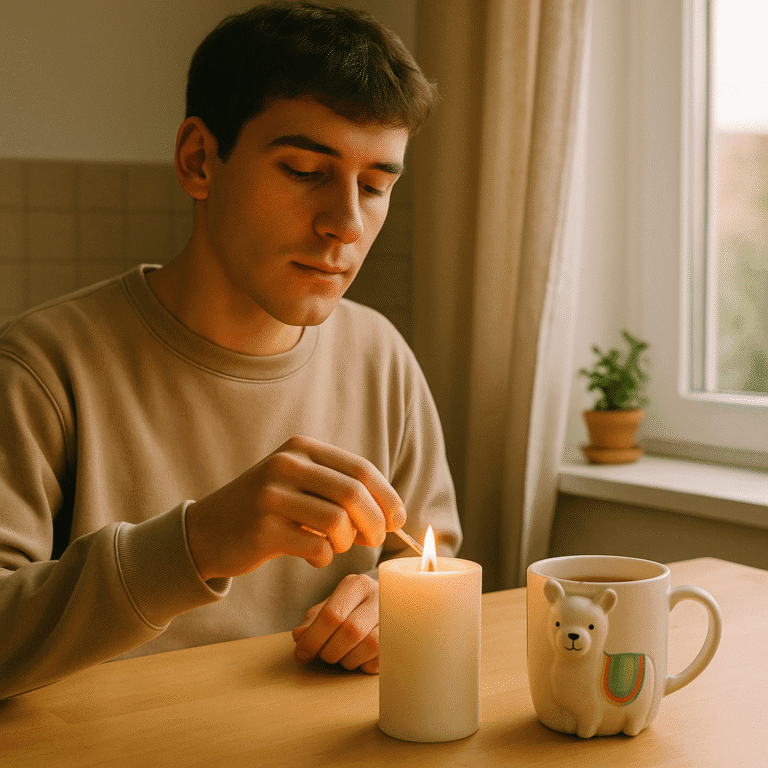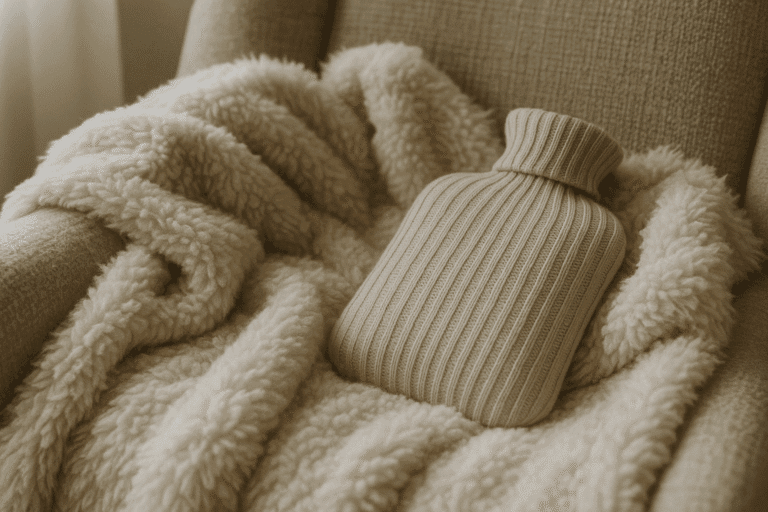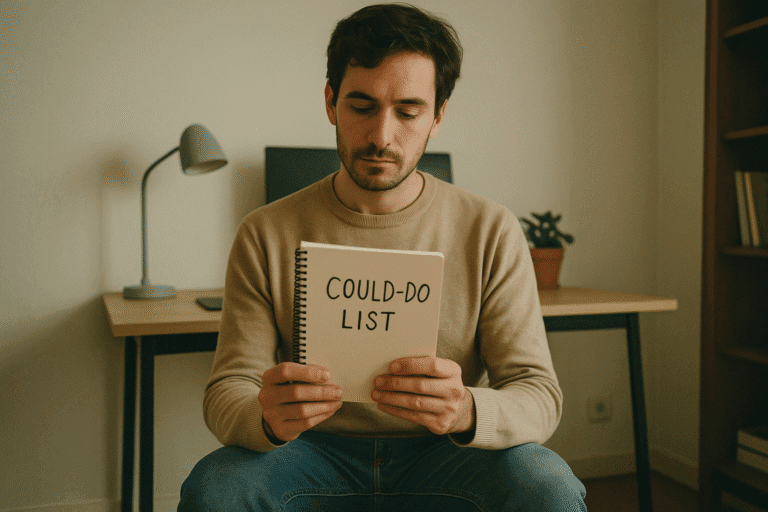Waking up with Crohn’s often feels like being handed a to-do list by your gut before you’ve had a chance to blink. Meds, toilet timing, food roulette—it’s chaos. And yet, we’re told the fix is chemical. But what if the real shift comes not from a new prescription, but a morning routine for Crohn’s that’s consistent, meaningful, and emotionally sticky?
That’s the question that led me down this rabbit hole. We often treat Crohn’s disease like a checklist: meds, food, sleep, repeat. But what if the way you frame that checklist matters just as much as what’s on it?
This article is not medical advice. The ideas shared here are intended to support—not replace—conversations with your healthcare provider. If you’re considering changing your medication, treatment plan, or anything related to your Crohn’s care, always speak with your doctor first. Rituals and routines can help, but they’re not a substitute for clinically prescribed treatment.
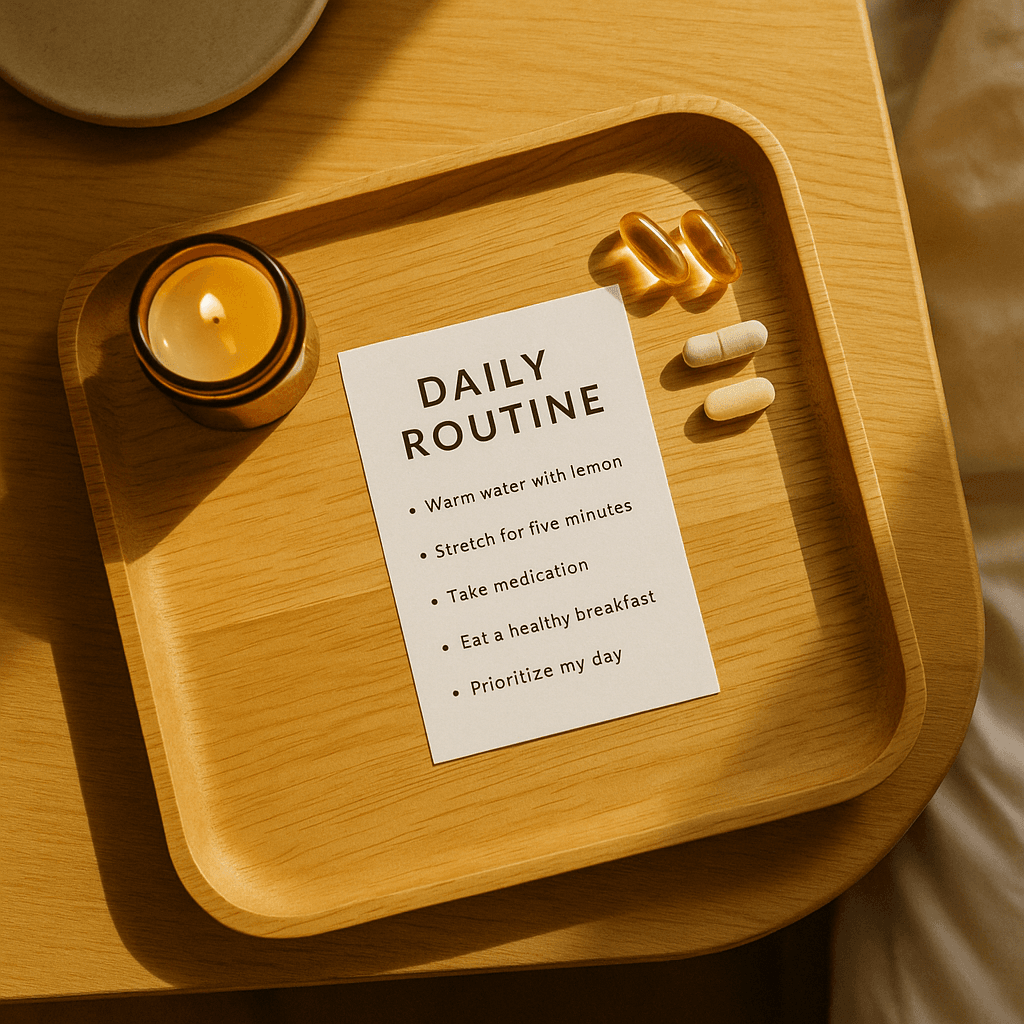
The Assumption That’s Letting Us Down
Let’s start with this: we assume clinical outcomes are clinical. Meds work because they contain the right molecules. Food helps or hurts based on its chemical profile. And rituals? Well, they’re something Gwyneth Paltrow does in candlelight.
But what if that last part has more power than we think?
Why Your Brain Might Be the Best Gut Tool You’ve Ignored
The placebo effect isn’t about faking it. It’s a measurable, replicable phenomenon where belief, expectation, and routine influence the body’s response.1
- Patients who think a pill is stronger experience more pain relief
- Colours of pills affect outcomes (red stimulates, blue calms)
- Brand-name drugs outperform generics in patient-reported results
This isn’t mysticism. It’s marketing meets neuroscience. The placebo effect works because your brain treats repeated, meaningful actions as credible medicine—whether it’s a red pill or your morning routine for Crohn’s. The packaging isn’t the product—but it is part of the effect.
And when you live with Crohn’s, that conditioning is everywhere. The problem is, we haven’t made use of it.
How to Turn Your Morning Routine for Crohn’s into a Ritual That Works
Every Crohn’s patient already has routines. You don’t leave home without your meds. You know what breakfast won’t cause regret by 11am. You might also explore some Crohn’s recipes to make your mornings easier on your gut without sacrificing flavour.You’ve got your toilet map memorised like it’s a secret spy mission.
But most of us treat those routines as burdens. What happens if we treat them like rituals?
Here’s the switch:
- “I have to take this” becomes “This is part of my Gut Reset”
- “I need to eat early or else” becomes “I start the day with my Fuel Phase”
You’re not lying to yourself. You’re branding the behaviour.
What Marketers Know That Your Doctor Doesn’t Say
Julian Cole talks about mental availability—being top of mind when a need arises. Branding isn’t just for toothpaste. It’s about recognisability, repeatability, and emotional stickiness.
Apply that to your health.
When your morning routine is:
- Named
- Repeated
- Paired with consistent sensory cues
…you stop negotiating with yourself each morning. You just do it. It becomes familiar, safe, even comforting. That’s behavioural gold.
Rituals Anchor You When Crohn’s Doesn’t Cooperate
Crohn’s can be unpredictable. You can do everything right and still end up horizontal.
That’s why ritual matters. Even if your gut is in rebellion, your structure holds.
Build your morning routine for Crohn’s like this:
- Name it: Morning Reset, Flare Shield, Operation Gut Calm
- Pair it: Use a favourite mug, play a specific playlist, light a candle, wear the same hoodie
- Sequence it: Drink warm water with lemon, do five minutes of stretching, then take meds
- Repeat it: Every day. Especially the bad ones.
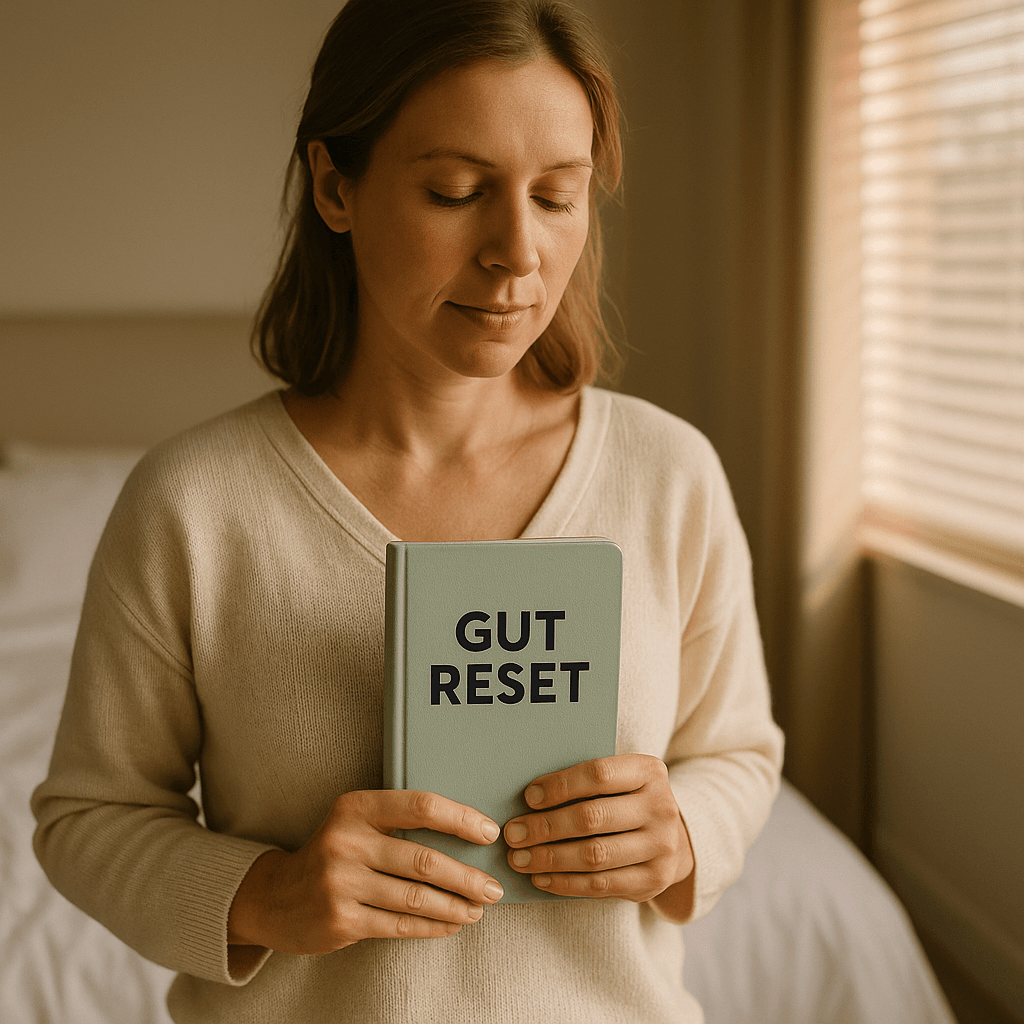
Why Your Morning Habits for Crohn’s Need Emotion, Not Willpower
Most failed routines have one thing in common: they’re forgettable. Not because we’re lazy, but because they lack salience. They don’t stand out. They don’t feel good. Behavioural economists call this “lack of reinforcement.” I call it: beige habits.
Let’s steal a trick from app design. Successful wellness apps use a loop:
- Cue (the chime or visual)
- Routine (what you do)
- Reward (how it feels)
You can do this for your gut.
Example:
- Cue: You put the kettle on and open the window for fresh air.
- Routine: Stretch, sip, medicate, munch.
- Reward: Sit for 3 minutes with your favourite song, doing absolutely nothing. (That’s behavioural gold, by the way.)
You’re not just ticking boxes—you’re reinforcing control.
Make it pleasurable, make it predictable, and call it what it is: your morning routine for Crohn’s. Not a clinical check-in. A reset. A shield. A protocol.
It’s easy to skip habits. It’s harder to skip something that feels like identity.
Examples That Prove Rituals Work Everywhere
- Serena Williams won’t start a match without her headphones and exact grip rituals
- Nadal lines up his water bottles just so
- Calm and Headspace use sound, light, and sequence to create user rituals
These are performance routines. Yours is a survival one. Doesn’t make it any less powerful.
The Small Things Make a Big Difference
You don’t need incense or affirmations. You need consistency.
Build a ritual that says, “This is me taking control.” Even if your gut feels out of control.
Let your routine be something that tells your brain: “We’re still running the show.”
Because in chronic illness, structure isn’t a limitation. It’s liberation.
What People Ask About Morning Routines for Crohn’s
One that’s consistent, calming, and emotionally rewarding. Hydration, meds, movement, and sensory cues like scent or music can help.
Yes. While it’s not a cure, behavioural principles like habit loops and emotional reinforcement help with consistency, mood, and stress response.
It increases memory, personal investment, and emotional attachment—making it feel more like identity than obligation.
No. Routines complement treatment but don’t replace it. Always consult your doctor before changing your care plan.
Unpredictable foods, skipping meds, and rushing. Aim for calm, consistency, and routines that feel good to repeat.
It can’t cure Crohn’s, but belief, expectation, and routine can influence symptom perception, reduce anxiety, and help with consistency in treatment.
- The placebo effect is well-documented as a real, measurable phenomenon influenced by patients’ beliefs, expectations, and the psychosocial context of treatment. Research shows that both conscious cognition (expectancy theory) and automatic learning mechanisms (conditioning) shape the placebo response. [https://openpress.sussex.ac.uk/introductiontobiologicalpsychology/chapter/title-placebos-a-psychological-and-biological-perspective/] The effect is not simply “faking it,” but can be observed in clinical trials and even in measurable physiological changes. [https://www.bps.org.uk/research-digest/placebo-effect-digested] ↩︎

